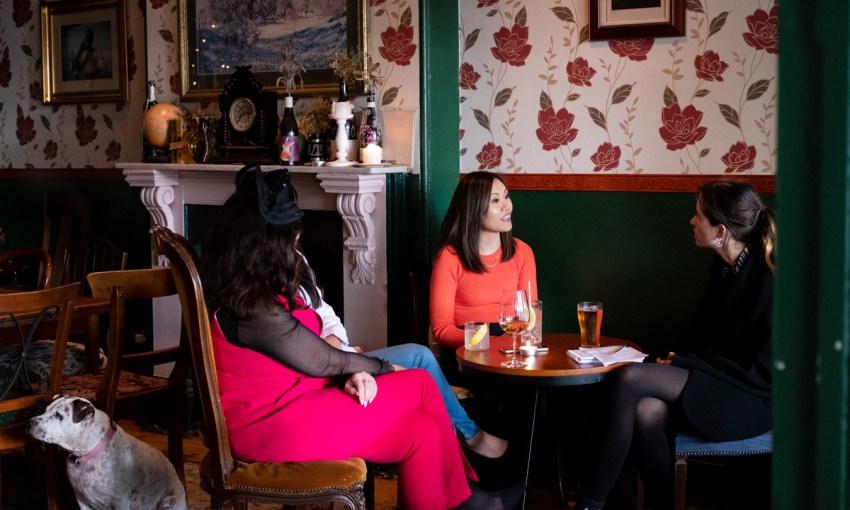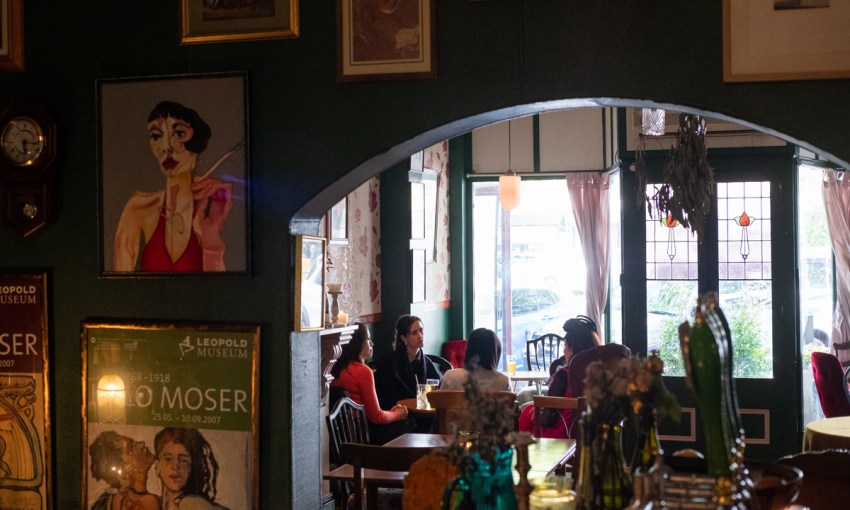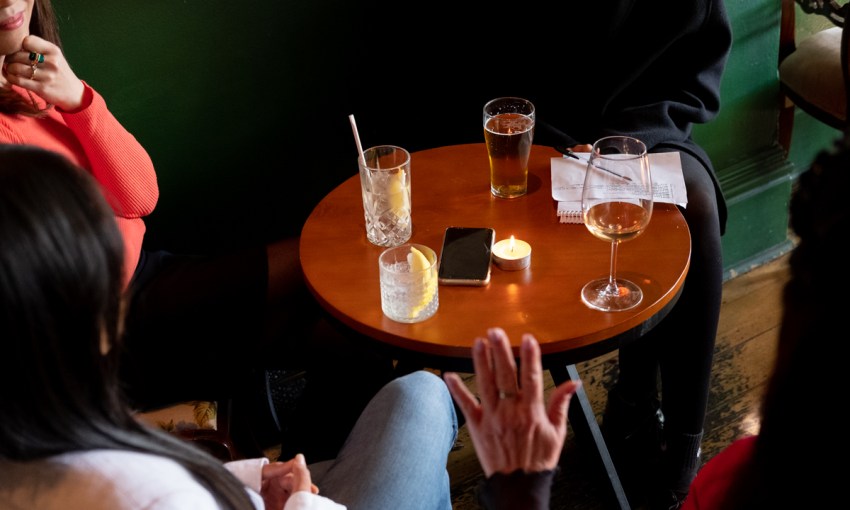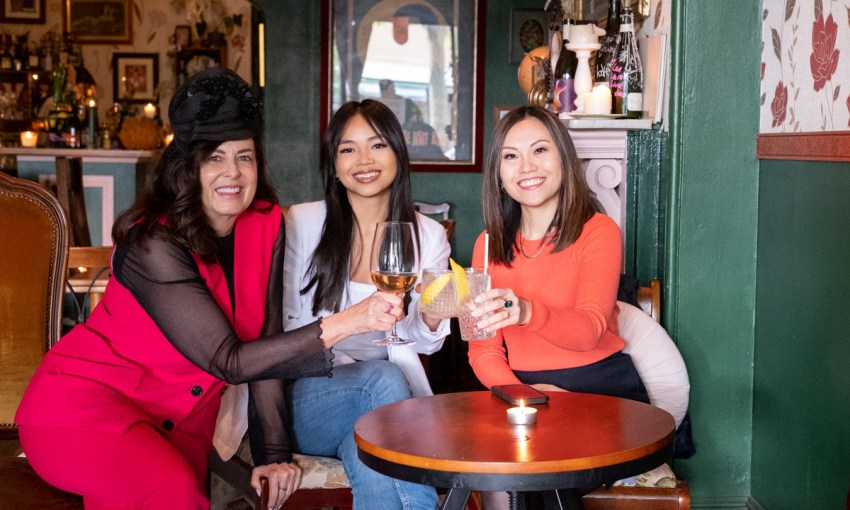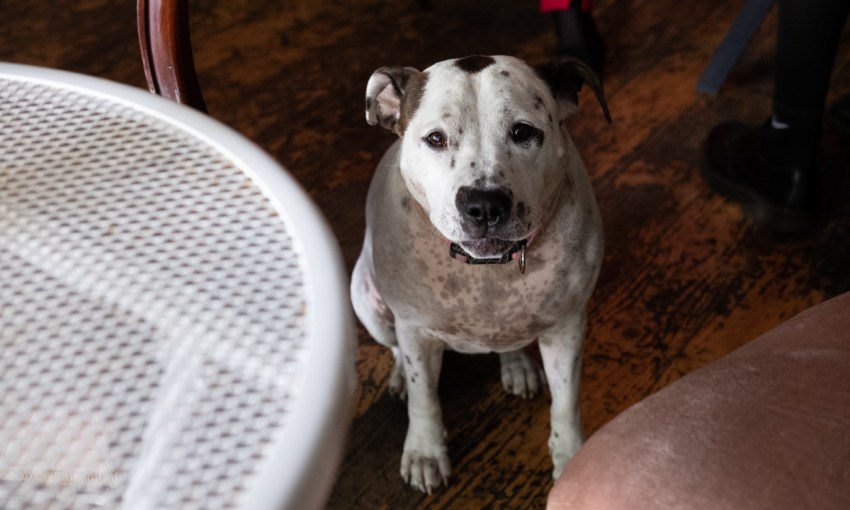The 2022 Adelaide City Council general election is almost over, but before the three-month campaign closes next week, three aspirant central ward councillors give their last-ditch pitch on what matters to them.
Front Bar Diplomacy: Council candidates discuss Park Lands, youth
Getting to the end of the City of Adelaide’s election period is like nearing the end of a Coopers keg. Only the juicy bits remain.
The ballots for the Adelaide City Council 2022 general elections close next week, on Thursday, 10 November, with the scrutiny and count slated for Saturday, 12 November. (The Electoral Commission SA recommends only delivering votes by hand from now on, as snail mail will be too slow.)
Over these last three months, CityMag has interviewed and spoken to a range of aspirants and incumbents vying for ratepayers’ valuable votes, which could earn them four years at the decision-making table.
We’ve spoken to almost all lord mayoral hopefuls — Rex Patrick, Jane Lomax-Smith, Sandy Verschoor and Steven Kelly — as well as councillor wannabes Janet Giles and (possibly returning) Phillip Martin.
New here? Sign up to receive the latest happenings from around our city, sent every Thursday morning.
In previous Front Bar Diplomacy editions, chamber adversaries Alexander Hyde and Kieran Snape joined us for a pint at the Cranka and discussed factions and bullying, while newcomers Mark Siebentritt, Hugo Siu and Ben Ayris debated actual policy at the Exeter.
For the third and final instalment of the series, we’ve invited three wannabe central ward councillors out for a drink to discuss their ambitions for the postcode 5000. Many of the same issues materialised that have been discussed over the past four years in Adelaide Town Hall. Some candidates’ platforms referenced homelessness, the Adelaide Park Lands and car parking. Another candidate brazenly admitted she “can’t actually promise anything”.
Here are the highlights of Front Bar Diplomacy at The Olivia on Hutt Street (also featuring photos of Piggy the pub staffy). The transcript has been edited for clarity and concision.
We also recommend readers eligible to vote in the city council election to visit the Electoral Commission SA website for a run-down on all candidates, as there is an exhaustive list including many we did not have the pleasure of speaking to.
Cheers!
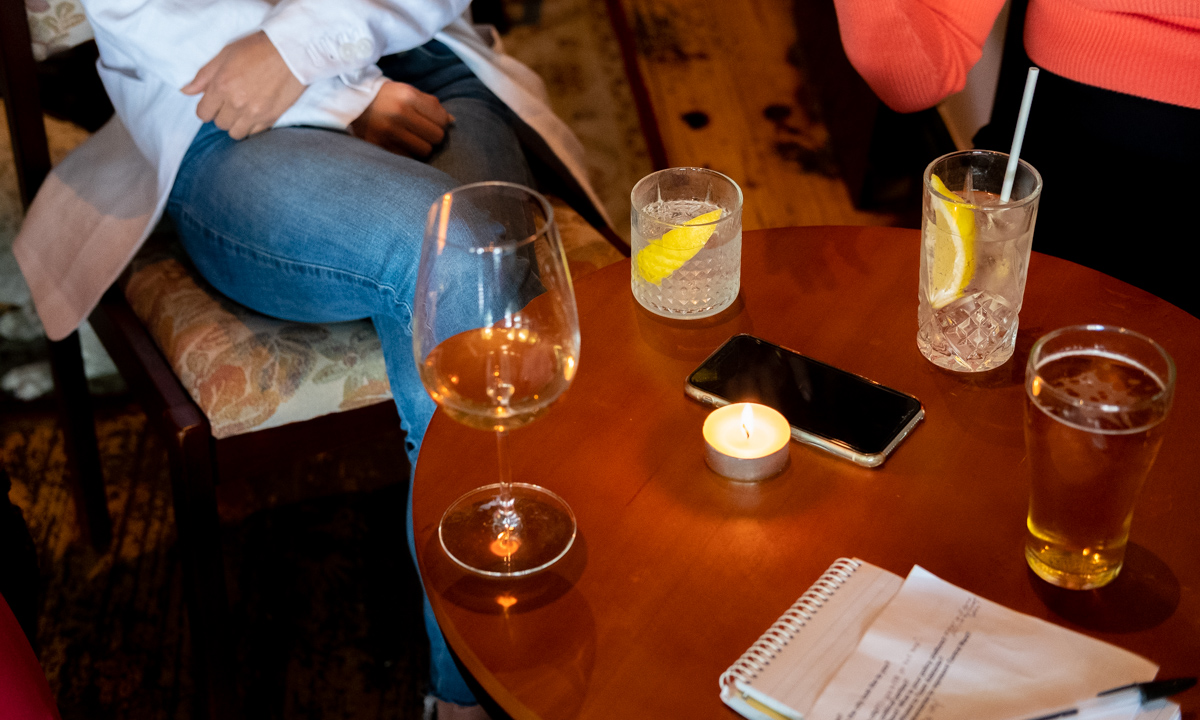
CityMag: What’s everyone’s drink of choice?
Tammy Vo: Gin and tonic.
Carmel Noon: I’ve got more into rosé over the last couple of years. I was very much Sauvignon Blanc, and I think rosés have improved.
Fiona Hui: I’m drinking a sparkling water with a piece of lemon.
CM: How does everyone enjoy a night out on the city?
CN: When there’s events, like [Illuminate] and Fringe, I just love walking around the city, because you actually see the city alive. It’s just fantastic. I live right around the Markets and it’s just really always hopping on a Friday and Saturday. In the lockdown, when we didn’t have that, it felt really, really awful. Even though it’s nightclubs or whatever, we just enjoy that, because that’s part of the culture.
CM: Tammy, how do you enjoy a night out?
TV: I’m young—
CM: Yes – you’re the youngest candidate.
TV: I love pubs; good music with good people. I like to drink as well, but not too much. I just really like Peel and Leigh Street. I try to visit each and every single place. Not a party girl. I like the liveliness of Hindley Street because I’m young… But with uni over the past two months, it’s been hectic, and doing work. I work at Eros Kafe.
CM: What about you, Fiona?
FH: I like going to music concerts. At Adelaide Town Hall there are lots of things, and I’ve recently been to one of those Beethoven symphony orchestras, and Elder Hall is also one of my other favourite places. I also enjoy going to film festivals. I quite like foreign French, Italian movies. Other than that, I do enjoy a lot of activities in the city, eating out.
CM: Fiona, you’re the only one out of the three candidates here today that doesn’t actually live in the central ward. Is that correct?
FH: I’m a commercial resident. I’ve got an office in Waymouth Street, a body corporate for an international education consultancy.
Note: Fiona’s candidate website says she has lived in the city for 18 years. She later clarified to CityMag that she does not currently live in the city but has been a resident in the city on and off for almost two decades.
CM: But you work at UniSA?
FH: Yes, I do.
CM: And you do the consultancy on the side?
FH: Yes, on the side. It’s more like the side helping the business because of the knowledge in international education. And that’s why I got into that as well.
CM: And when did you start doing that?
FH: I started doing that about six months ago.
CM: Why?
FH: Why? Because I got the connection and get recommended about the knowledge in international education. And then they would feel that it will be good that if I can represent them in this community.
—Fiona Hui
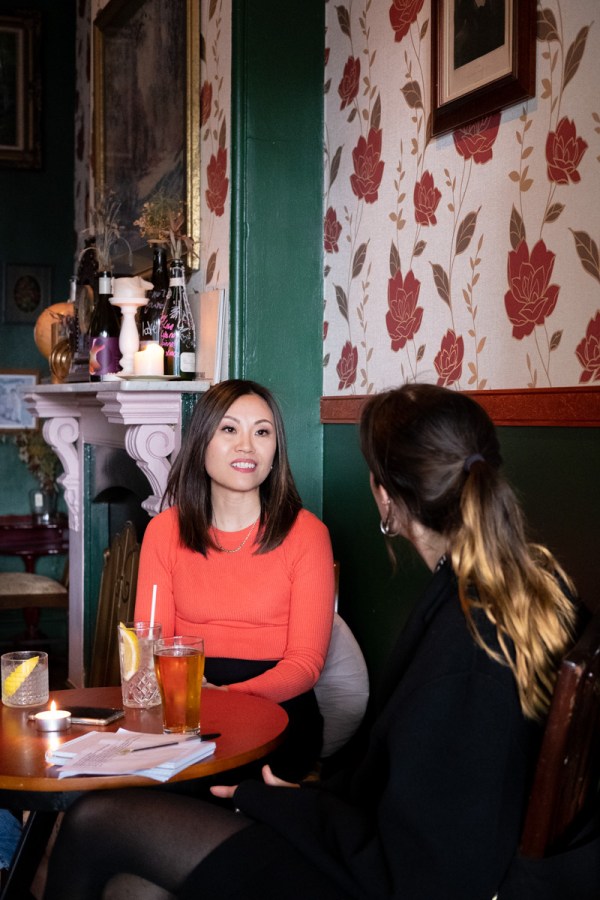
CM: Why does everyone want to run for the Adelaide City Council?
FH: I care about the future of our city and I can see that the current council has lost its way. There’s a lot of infighting and dysfunction and I feel that the community has been quite disconnected with the council process. I feel I can make a difference and contribute to a functional council that will be more in touch and listen to ratepayers.
CM: What about you, Tammy? Why do you want to run?
TV: Council is missing people like me – young, students, people of colour; people who are working and living in the city. Young. So I want to run for council because I represent a demographic that is unheard and is powerful, [and one] not about developers, real estate agents. It’s about students; normal, everyday people like me, who are living in the city as well. It’s a huge demographic within the city that’s not engaged in decisions getting made.
CM: How do you know that they’re disengaged?
TV: I didn’t know about council and I study politics. All I knew was state and federal. That’s a reflection of our disengagement in my demographic. I know a lot of people who live in the city, young people like myself, [and] when I ask them about an issue that’s relevant to the council area they go ‘Nup’. That’s a problem. They’re our next generation of voters, so it’s an issue we need to address.
CM: What about you, Carmel? Why do you want to run?
CN: I’ve been involved with local governments, originally as a CEO of a council, and then from a governance perspective, and in state government as well. Over the last two years, I’ve been up close and personal with the council through my own development issues. It’s forced me to watch the council over the last probably 12 months. I’ve watched every council meeting. It’s like really bad theatre to tell you the truth. You wouldn’t pay any money to watch it. But we do because we pay through our rates, and I guess watching them and their behaviours have been so appalling, especially with my governance background, that I’ve been sitting there going, ‘You have to be joking’. This is appalling behaviour, and it’s clear there’s been a faction there, controlling the decisions of the city.
My situation and the residents that are in our building, they’ve been victims of this council and their inaction, just wanting us to go away. I want to be involved with this. I want to try and change this. I actually know how I think I can change it.
CM: How would you change it? What’s your policy platform?
CN: I don’t think that I would ever make any promises such as ‘I’m going to actually ensure there’s two hours of free parking’ or whatever. I don’t think it works that way. In my experience, it certainly doesn’t work that way because you’ve got a group of people around the table making the decisions. So, to me, the best thing that could have come out at the last council, or the current, I should say, is the city plan.
When I heard that they were actually going to agree to a city plan, I went, ‘Oh my god, there isn’t one?’ To me, I also went to a lunch where Peter Malinauskas actually made an announcement that they were going to start the 30 Year Greater Adelaide Plan. You can’t do those in isolation of each other. My promise to the people of Adelaide is that I’m going to bring people together. That’s the one thing that I do well.
At the end of the day, the number one issue that when you go and speak to people with small businesses around the place is that parking is a major issue.
—Carmel Noon
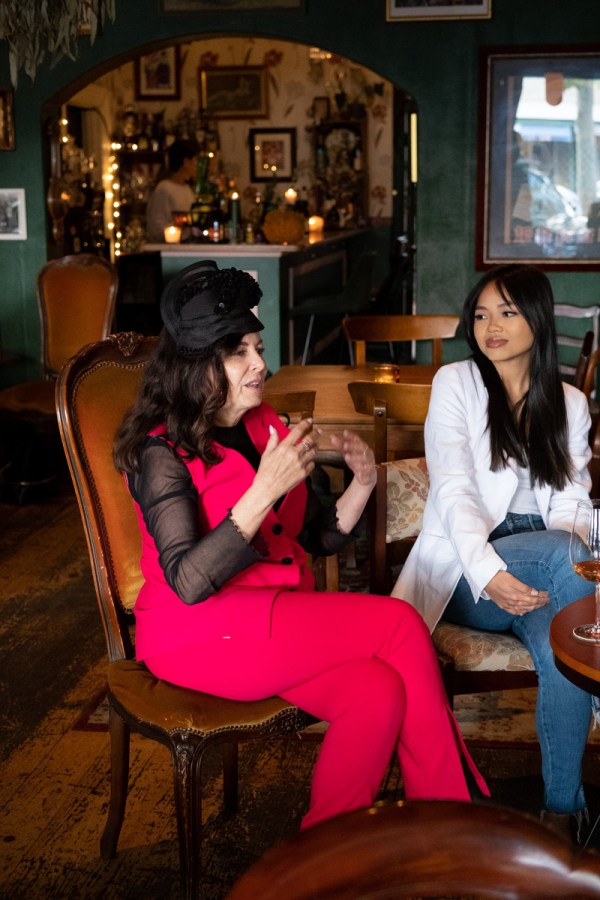
L—R: Carmel Noon and Tammy Vo
CM: So, you want to create more car parking spaces?
CN: I don’t think it’s a case of creating more car parking spaces. There’s a lot of ways that we need to look at this. There is no one silver bullet here. We actually have to look at the city plan and we have to go out outside of our city and see how it also works together – the bike lanes, the trams, the car – because people in South Australia do have a car mentality. They still drive into the city, so it’s no point actually removing car parks and actually putting [in] bike lanes. We actually have to do everything in harmony and balance.
If you read up on what actually happened in the bike lane situation, back when the state government gave $3 million to the local government council to build this bikeway, and they were just talking about pathways that were taking a whole range of different things into consideration. Lucky it was voted down, because of a lack of community consultation.
CM: So, you support that particular bike route being scrapped?
CN: I would have supported that decision, only based on the facts that there was poor consultation. They did not take a whole range of other things into consideration.
CM: What about you, Tammy? What are your plans and when do you want to deliver them by?
TV: Well, I can’t actually promise anything.
CM: What are your policies then?
TV: I work in hospitality, during peak-COVID, and so I know the hospitality experience. There was a lack of people coming into the city. As a young person, I haven’t always lived in Adelaide. I came here to study because it was affordable, liveable. It was ideal for a young adult. Now, not so much. I really want to focus on policies in not only bringing in people from other countries to come here and study with us, but also make the experience for people already here better.
—Tammy Vo
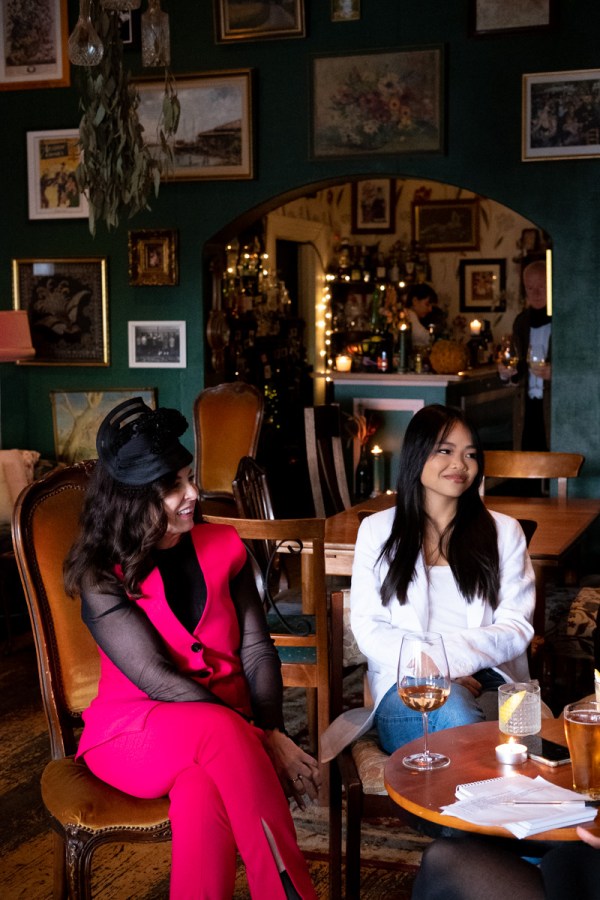
L—R: Carmel Noon and Tammy Vo
CM: And how would you do that?
TV: Incentivise programs. Come up with events.
CM: Does that mean increasing the council’s event budget?
TV: I would definitely reach out and communicate with other organisations, like the [Adelaide] Economic Development Agency, to see what we can do to try to innovate and create ways for contribution. But also bring in events and programs that don’t blow a big hole for our community as well.
Note: The Adelaide Economic Development Agency is a subsidiary of the Adelaide City Council.
CM: What do you mean ‘blowing a big hole’?
TV: Not rely on ratepayers too much, because that also affects them in a negative way, especially in these times with hospitality and other businesses paying rates they can’t afford.
CM: Fiona, what are your policies and guidelines and dates?
FH: I can’t comment on the deadlines for my policy, because you work with other councillors and the council’s current plans already, but I will be very keen to focus on three things. One is revitalise the city post-COVID. You can see a lot of empty stores and businesses and a lot of small mum-and-dad businesses are really struggling and dying. And I’ve been door-knocking all the communities – their feedback has been improving the parking situation. The city council used to have two hours free parking. So it could come back, and there seem to be quite a lot of support from different councillors and candidates.
CM: I think Franz Knoll suggested that a couple of weeks ago.
FH: I haven’t paid attention to his campaign.
CN: But you wonder why he hasn’t done that the last four years then, because he’s a current councillor.
FH: Very good point. [But] I will be in support of that. The more council candidates or councillors in support of that the better. A lot of businesses told me they have not been listened to. When I was door-knocking and a lot of them said, ‘Fiona, nobody has ever come here. You’re the first one’. So there is a clear disconnect between the business community and the current council.
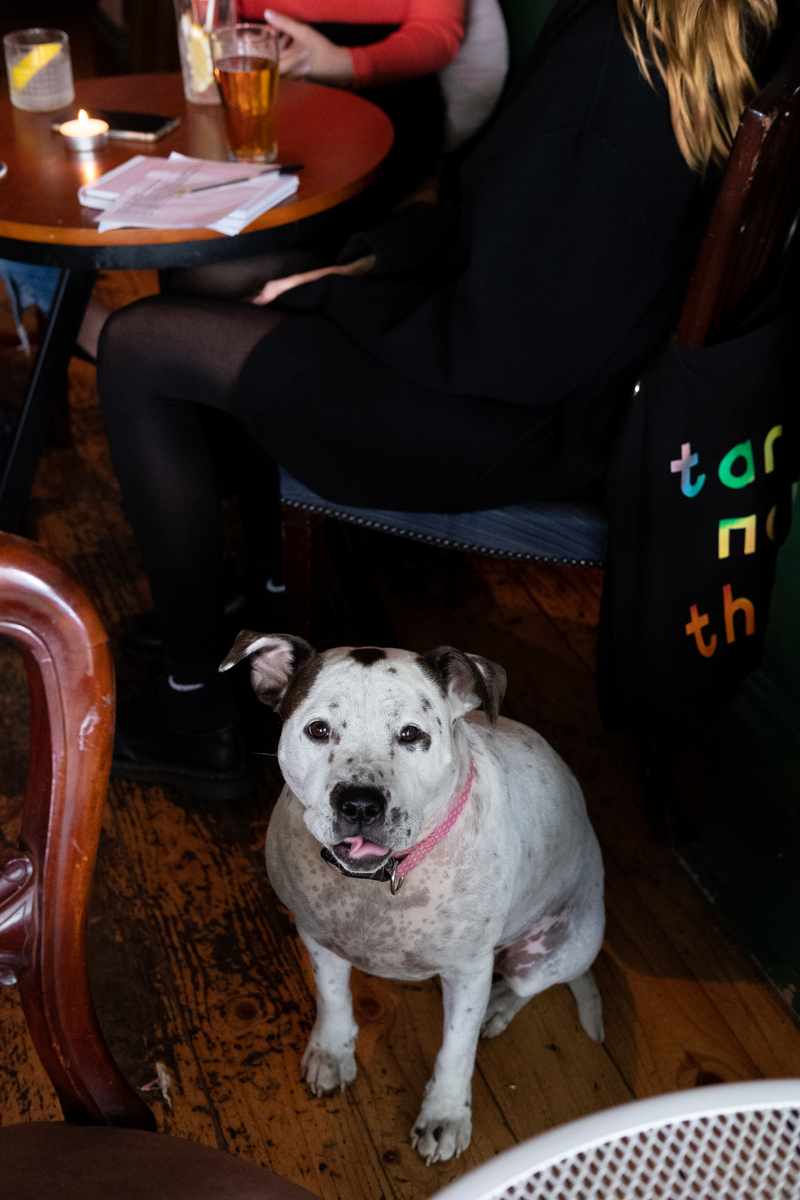
If elected, Piggy promises more treats
CM: How would you change that if you were elected?
FH: I am already in touch with all of them. Obviously, there’s quite a number of them in the city, from small, medium to bigger organisations. But before I came here I was with the owner of the Bank of Queensland, and heard their vision – and heard their parking issues – but heard their vision about sensible development as well. Second point is more greening [in] Adelaide. In the central ward, unlike the north and the south ward, we have less tree covers than other wards; we’ve only about 20 per cent. While the north and south, they’ve got about 50 or 60 per cent. So it will be good that the council can incentivise building owners and plant more trees and also rooftop plants.
CM: Fiona, before we move on, your council candidate profile says you want to improve safety and lighting in the Adelaide Park Lands, especially in dry areas. Can you walk me through the impetus behind that?
FH: For example, in Whitmore Square in the Park Lands, and Rymill Park, they are supposed to be dry areas, which means that citizens shouldn’t be drinking in those places. The residents that I’ve been speaking with worry about safety, because they see a lot of drunks and sometimes intimidating behaviour. They would love the city council to better uphold those safe and dry areas.
CM: Isn’t that a policing issue, though? And how would lighting help?
FH: Yes, police is definitely under State Government. But the council can play a more active role in working with SA Police, for example, to target certain areas. For example, Whitmore Square is a big one. If it’s dark, people can drink in the dark. If there’s more lighting then it will be less likely for people to be drinking in those places.
CM: Won’t that just move the problem?
FH: It is a balancing act. I do mention about this social inclusion. So rather than completely ignoring the needs of the community, which may be Aboriginal and drinking or [dealing with] social issues, we can, as a council, advocate to work with those agencies who are specialised in dealing with homelessness, dealing with social issues, to work with them together, to get their feedback about how we can better target those problems, and maybe in what area of the city have a place they can safely gather and socialise.
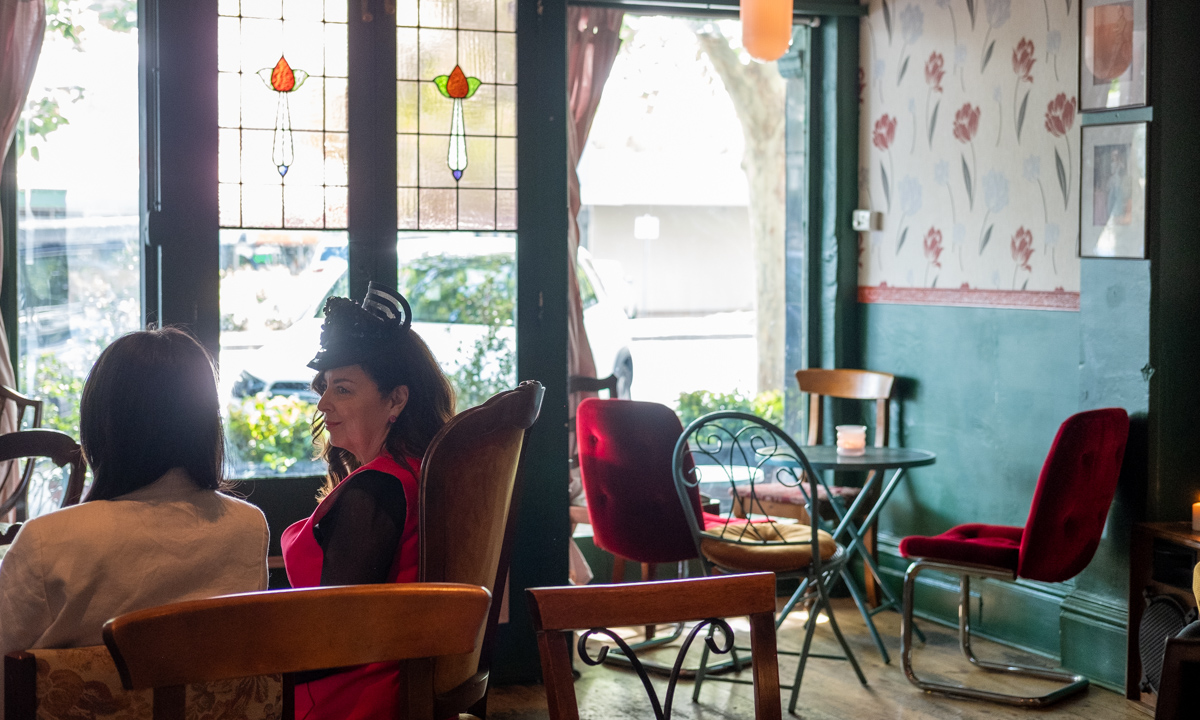
Carmel celebrated the Melbourne Cup on the day of our debate, hence the fascinator
CM: What’s one thing in the city you would like to cheers to?
CN: We’re a city in the park. I want to maintain that, and its accessibility. And I cheers the multicultural aspect of it.
CM: What about you, Tammy?
TV: I cheers to our ability to balance between life, work and fun. We’ve got residents, we’ve got businesses, they coexist in this really beautiful ecosystem.
CM: And you, Fiona?
FH: We are very proud of Adelaide being the city of music, city of park lands, city of knowledge, university city, and an inclusive, welcoming, global city.



